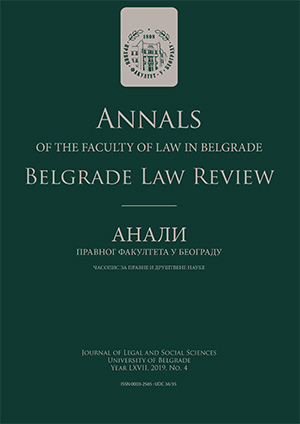USING TAX POLICY TO ADDRESS BRAIN DRAIN AND DEPOPULATION: THE CASE OF CROATIA
USING TAX POLICY TO ADDRESS BRAIN DRAIN AND DEPOPULATION: THE CASE OF CROATIA
Author(s): Stjepan GadžoSubject(s): Economy, International Law, Demography and human biology, Economic development, Migration Studies, EU-Approach / EU-Accession / EU-Development, Fiscal Politics / Budgeting, EU-Legislation
Published by: Правни факултет Универзитета у Београду
Keywords: Brain drain; Tax policy; Personal income tax; Preferential tax regimes; Exit taxation;
Summary/Abstract: As the end of the Twenty-Tens approaches, there is a growing public consensus in Croatia that the key challenge facing the country is of demographic nature. Put simply, the accession to the European Union (EU) in July 2013 only exacerbated the negative trends regarding the emigration of mostly young and high-skilled workers to other, more developed countries. However, policymakers have hitherto failed to offer a comprehensive set of countermeasures, with tax policy being no exception. Accordingly, it is the aim of this paper to explore possible tax measures the Croatian legislator may employ in tackling the brain drain phenomenon, with special emphasis on highly skilled workers. More specifically, starting from the assumption that policymakers want to assume a more proactive role in addressing brain drain, the main contribution of the paper is in drawing the contours of a coherent tax-related response to this issue.
Journal: Анали Правног факултета у Београду
- Issue Year: 67/2019
- Issue No: 4
- Page Range: 116-146
- Page Count: 31
- Language: English

